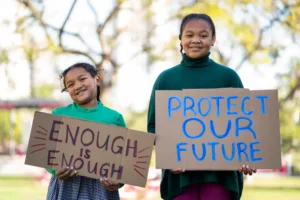Introduction: A Crisis Beyond Visibility
In the vast, arid landscapes of Turkana and Kenya’s North Corridor region, the daily struggle for water is not just a matter of inconvenience—it is a fight for survival. While much of Kenya strides forward in development, these regions are left behind, burdened by a chronic lack of access to clean water and basic sanitation.
A Legacy of Neglect
Turkana, Kenya’s largest county, has some of the poorest water and sanitation indicators in the country. Over 60% of its residents rely on unsafe water sources such as seasonal rivers or saline boreholes. Basic toilet facilities are scarce, and open defecation remains widespread—posing grave health and dignity concerns.
Climate Change: A Threat Multiplied
Droughts, worsened by climate change, have dried up traditional water sources, displacing pastoral communities and igniting conflict over scarce resources. The impact on women and children, who often bear the burden of water collection, is especially devastating.
Policy and Infrastructure Gaps
Though devolution offered hope, most county governments lack the funding and technical capacity to implement sustainable WASH (Water, Sanitation and Hygiene) services. National and regional projects, such as LAPSSET, have yet to deliver tangible benefits to these underserved communities.
A Rights-Based Approach
Access to clean water and dignified sanitation is not a privilege—it is a human right. Yet this right continues to be denied to thousands across Turkana and the North Corridor. Real change demands more than policy—it demands political will, targeted investment, and global solidarity.
A Global Call to Action
This editorial urges the World Bank, the Government of Kenya, and international development agencies to act decisively. Turkana and its neighbors need:
Scaled-up investment in climate-resilient water systems (solar-powered boreholes, rainwater harvesting).
Community-led sanitation solutions.
Stronger partnerships between government, NGOs, and international donors to build sustainable, inclusive WASH infrastructure.
Conclusion: No Development Without Water
Water is life. Without it, there can be no health, no education, no development. The people of Turkana deserve more than survival—they deserve dignity, equity, and a future. Let this be the decade that ends the WASH crisis in Kenya’s forgotten North.
Story by Natasha Batley




